Introduction
Are Pigeons Loud: Pigeons, often dismissed as ubiquitous urban birds, are subject to diverse opinions on their vocal habits. The question of whether pigeons are inherently loud creatures or merely misunderstood members of the avian community is one that intrigues both casual observers and ornithologists alike. Found in bustling city centers, parks, and even rural areas, pigeons are known for their distinctive cooing sounds. However, the perception of their noise level varies widely among individuals, leading to debates about whether these seemingly unassuming birds are truly loud or if their calls are simply a natural part of the auditory landscape.
Understanding the vocalization patterns of pigeons requires delving into their communication mechanisms and social behaviors. Pigeons are highly social animals that utilize vocalizations for various purposes, including mating displays, territory marking, and communication within their flock. While some may find their coos soothing or even charming, others argue that the collective cacophony of a large pigeon population can become overwhelming, especially in densely populated urban areas. Exploring the nuances of pigeon vocalizations and their impact on different environments is essential to forming a comprehensive perspective on whether these birds can be accurately characterized as loud or whether their vocal habits are a misunderstood element of their nature.
In this exploration of pigeon vocalizations, we will delve into the science behind their pigeon coop, examining the purposes these sounds serve in the context of pigeon behavior. We will explore the cultural and societal attitudes towards pigeon noise, investigating how perceptions may shape the way we view these feathered city dwellers. By the end of this discussion, we aim to shed light on the question of whether pigeons are inherently loud or if their vocalizations are a nuanced aspect of their existence that warrants a more thoughtful understanding.

How noisy are pigeons?
Pigeon calls usually don’t bother people because they are soft and barely audible. The birds may grunt when they are distressed, as well. In large groups, pigeons create a lot of noise and annoy people.
The perceived noise level of pigeons can vary depending on several factors, including the number of pigeons in an area, the presence of nesting sites, and individual sensitivities. Pigeons are not particularly loud compared to some other bird species, but in certain situations, their cooing sounds can become noticeable.
In urban environments where pigeons are abundant, the collective cooing of a large population can contribute to ambient noise. Pigeons are social birds that use vocalizations for communication, especially during courtship, establishing territory, and interacting with other pigeons. Their coos are generally soft and rhythmic, and many people find them soothing or even charming.
While individual coos may not be loud, the cumulative effect of numerous pigeons cooing in close proximity can create a background noise that some individuals may perceive as bothersome, particularly if they are concentrated around areas with food sources or nesting sites.
It’s worth noting that people’s perceptions of pigeon noise can vary widely. Some may not find pigeon cooing to be disruptive at all, while others may consider it an unwanted element of urban living. Additionally, advancements in soundproofing technologies and urban planning strategies are sometimes employed to mitigate the impact of ambient noise, including that produced by bird populations such as pigeons.
Are pigeons loud as pets?
They are quiet and unobtrusive, with a calming, gentle voice. They are easy to tame. They are generally healthy and very hardy. They are active but not overly demanding.
Pigeons kept as pets, also known as homing pigeons or pet pigeons, are generally not considered loud in the same way that their wild counterparts might be perceived in urban environments. Domesticated pigeons, when raised in a home or loft, exhibit behaviors that are quite different from those of wild pigeons.
Pet pigeons may coo, but their vocalizations are often softer and more intermittent compared to the constant cooing heard in large flocks of wild pigeons. The noise level of pet pigeons is generally manageable and not considered disruptive.
If you are considering keeping a pigeon as a pet, it’s advisable to understand their needs, provide them with a suitable living environment (like a pigeon loft), and be prepared for the responsibilities of caring for a bird. Ensuring that the living conditions are comfortable and that the pigeon has appropriate socialization can contribute to a positive experience for both the pet and the owner.
Why do pigeons make noise all the time?
One of the main reasons pigeons coo is to communicate with each other. The calling is particularly used when they’re trying to attract a mate or defend their territory. If this is the case, they often strut, bow or fan their tails at the same time.
Pigeons make noise for various reasons, and their vocalizations serve different purposes in their social and communicative behaviors. Here are some common reasons why pigeons make noise:
Communication: Pigeons are highly social birds that communicate with each other through vocalizations. The cooing sounds they make can serve as a means of establishing and maintaining contact with other pigeons. These vocalizations are often part of their courtship rituals and can be a way for pigeons to express their presence and maintain social bonds within a flock.
Mating Displays: During the breeding season, male pigeons engage in elaborate courtship displays to attract females. These displays often include specific vocalizations, and the cooing sounds may intensify as part of the mating ritual.
Territorial Behavior: Pigeons are territorial birds, and they may use vocalizations to establish and defend their territory. This can be especially noticeable in urban areas where pigeons coexist in close proximity to humans and other pigeons.
Nesting and Communication with Offspring: Pigeons communicate with their offspring through soft cooing sounds. These gentle vocalizations help maintain contact between parents and chicks and can serve to reassure and comfort the young pigeons.
Alerts and Warnings: Pigeons have a keen sense of their surroundings, and they use vocalizations to alert other members of their flock to potential dangers. Sudden loud sounds or unusual stimuli can trigger a chorus of coos as a warning signal.
How do you stop pigeons from making noise?
There are several methods that are proven to be effective – bird gel, electric and visual deterrents, bird wires and spikes, sonic and ultrasonic deterrents, bird netting, bird hazers, and the most humane option – bird birth control.
Reducing or preventing noise from pigeons can be approached in several ways, often involving a combination of deterrents and modifications to the environment. Here are some strategies to help minimize pigeon noise:
Limit Food Sources: Pigeons are attracted to areas with easy access to food. Limiting their food sources can discourage them from congregating in large numbers. Ensure that garbage bins are sealed, and any potential food scraps are properly disposed of.
Bird-Proofing Structures: Pigeons often roost on ledges and building structures. Install physical barriers, such as spikes, nets, or sloping surfaces, to prevent them from perching and nesting in these areas. This can help reduce the number of pigeons in a particular location.
Sound Deterrents: Some sound deterrents are designed to discourage pigeons by emitting sounds that are irritating to them. However, it’s essential to use these devices carefully, as they may also affect other wildlife or pets in the vicinity.
Ultrasonic Devices: Ultrasonic devices emit high-frequency sounds that are bothersome to pigeons but generally inaudible to humans. These devices are designed to deter pigeons without causing harm.
Use of Visual Deterrents: Pigeons can be deterred by visual stimuli. Reflective surfaces, moving objects, or predator decoys can make an area less attractive to pigeons.
Scare Tactics: Periodic use of scare tactics, such as sudden loud noises or movement, may startle pigeons and discourage them from frequenting a specific area.
Professional Services: Consider hiring professional pest control services or bird control specialists. They can assess the situation and provide customized solutions, which may include physical deterrents, netting, or other bird control measures.
Can pigeons hear human voices?
However, at the extreme ends of this spectrum, the sounds must be rather loud to be audible. (For example, the fundamental pitches from a piano range from about 28 Hz to 4186 Hz.) But what about pigeons’ hearing? Earlier tests had shown that pigeons were about as sensitive as humans between 200 Hz and 10,000 Hz.
Yes, pigeons have a keen sense of hearing, and they are capable of hearing human voices. Pigeons, like many birds, have a well-developed auditory system that allows them to detect a wide range of sounds, including the frequencies present in human speech. Their ability to hear plays a crucial role in various aspects of their behavior, such as communication within their flock, detecting potential predators, and responding to environmental cues.
Pigeons can even hear in the ultrasonic range, beyond the range of human hearing. This heightened sensitivity to sound helps them navigate their surroundings and communicate with other pigeons effectively.
Are pigeons quiet?
Domestic pigeons and doves make great pets. Good natured and mellow, they love both their own kind and people and they are easy to care for. They’re quiet, smart and social. They don’t bite, pluck, or chew and are low maintenance pets.
Pigeons are not typically known for being particularly loud compared to some other bird species. Their vocalizations, commonly recognized as soft coos, are generally considered gentle and can even be soothing to some people. Pigeons use these cops for communication, especially during courtship and to establish territory.
The perception of whether pigeons are quiet or not can depend on individual experiences and preferences. In urban environments where pigeons are abundant, the collective sound of many pigeons cooing can become noticeable, especially in densely populated areas. In such settings, some individuals may find the ambient noise created by pigeons to be a familiar and integral part of the urban soundscape, while others might consider it bothersome.
It’s essential to note that opinions about the noise level of pigeons can vary, and what one person finds quiet or pleasant, another might find disruptive. Overall, compared to some other bird species, pigeons are generally not known for producing loud or harsh vocalizations.
Is it OK to touch pigeons?
No matter whether you love pigeons or hate them, they do spread diseases that can infect humans. Psittacosis is one of these diseases. Occasionally being around pigeons is unlikely to lead to infection. But certain circumstances surrounding homes and businesses can put people at risk of becoming infected.
In general, it’s best to avoid touching wild pigeons or any wild birds. While pigeons are not inherently aggressive and may seem approachable in urban environments, there are several reasons why it’s advisable to refrain from touching them:
Potential for Disease Transmission: Wild birds, including pigeons, can carry various diseases and parasites. Direct contact with them, especially through touching, increases the risk of disease transmission to humans.
Stress to the Bird: Handling can be stressful for wild birds, disrupting their natural behaviors and potentially causing harm. The stress from human contact may weaken their immune systems and make them more susceptible to illness.
Legal Considerations: In some places, it may be illegal to handle or capture wild birds without proper permits. Wildlife protection laws are in place to ensure the well-being of wild animals and to prevent interference with natural ecosystems.
If you encounter a pigeon that seems injured or in distress, it’s advisable to contact local wildlife rehabilitation authorities or animal control. They have the expertise and resources to handle wild birds safely and appropriately. If there is a need to interact with pigeons, such as in the case of domesticated or captive pigeons, it’s still essential to practice good hygiene and wash hands thoroughly afterward to reduce the risk of disease transmission.
What sounds do pigeons fear?
Pigeons can be frightened by loud and sudden noises, which can startle them and cause them to fly away. Some specific noises that may scare pigeons away include loud claps, hissing sounds, predatory bird calls, and even ultrasonic bird repellers that emit high-frequency sounds that are unpleasant to pigeons.
Pigeons, like many birds, are generally wary of loud or sudden noises. These sounds can startle them and disrupt their normal activities. Common noises that may cause fear or discomfort in pigeons include:
Loud Bangs or Explosive Sounds: Sudden loud noises, such as fireworks, gunshots, or loud machinery, can startle pigeons and cause them distress.
Predator Calls: Pigeons have natural predators, and the sounds associated with these predators, such as the calls of birds of prey or other threatening animals, can trigger fear responses.
Ultrasonic Sounds: Pigeons can hear in the ultrasonic range, so sounds that are beyond the range of human hearing may be unsettling to them. Ultrasonic devices are sometimes used as bird repellents.
Electronic Noises: Unnatural or electronic sounds, especially if they are sudden or unfamiliar, can be distressing to pigeons.
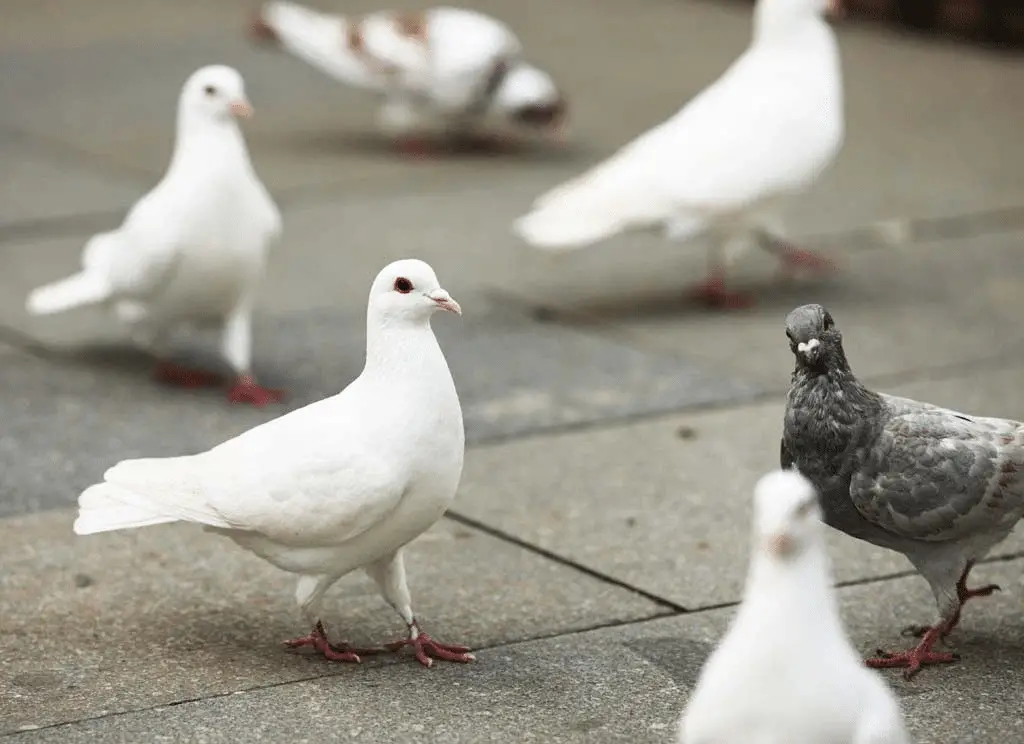
Conclusion
The question of whether pigeons are loud is not a straightforward binary proposition but rather a nuanced consideration shaped by biological, environmental, and subjective factors. Pigeons, with their distinctive coos, engage in vocalizations that serve vital roles in their communication and social dynamics. While these sounds may be an intrinsic part of their nature, the perception of their loudness varies widely among individuals and communities. Understanding the science behind pigeon vocalizations, as well as their social behaviors, contributes to a more informed perspective on the role of these birds in our urban and natural environments.
The cultural and societal attitudes toward pigeons play a crucial role in shaping perceptions of their noise. The dichotomy between those who appreciate the gentle cooing as a part of the urban symphony and those who find it disruptive underscores the complexity of the issue. As cities continue to grow and human and pigeon populations coexist in shared spaces, finding a balance that respects both the natural behaviors of pigeons and the preferences of the human inhabitants becomes increasingly important. Ultimately, recognizing the multifaceted nature of pigeon sounds vocalizations encourages a more nuanced and empathetic approach to cohabitation with these feathered companions. As we contemplate the question of whether pigeons are loud, it becomes evident that the answer lies not just in the decibel level of their coos but in the delicate interplay between nature and urban life.

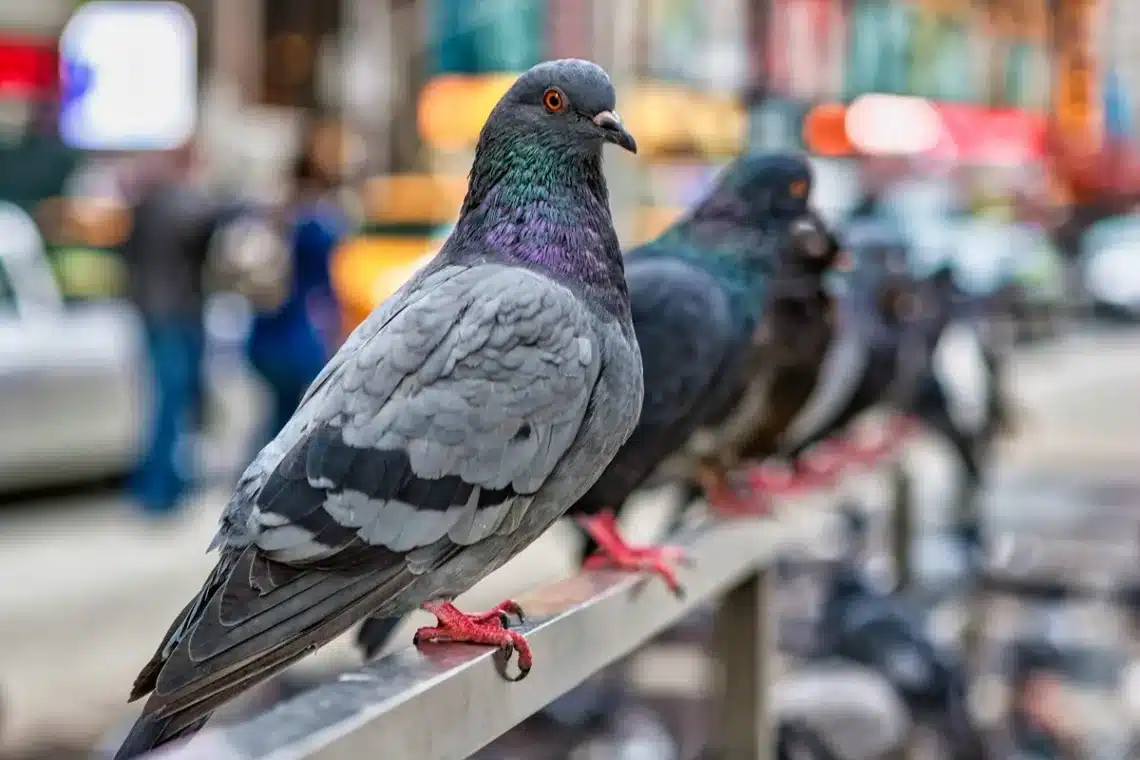
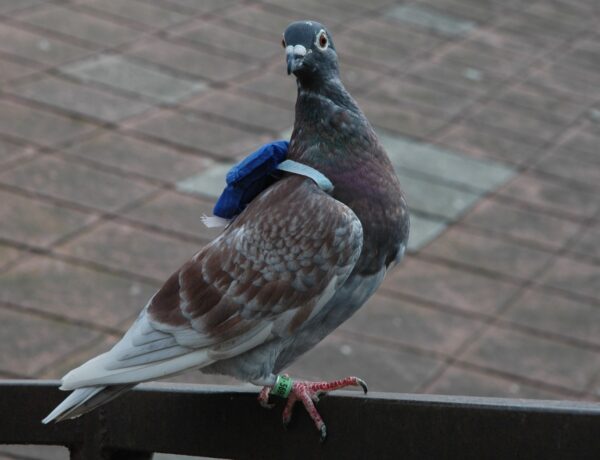
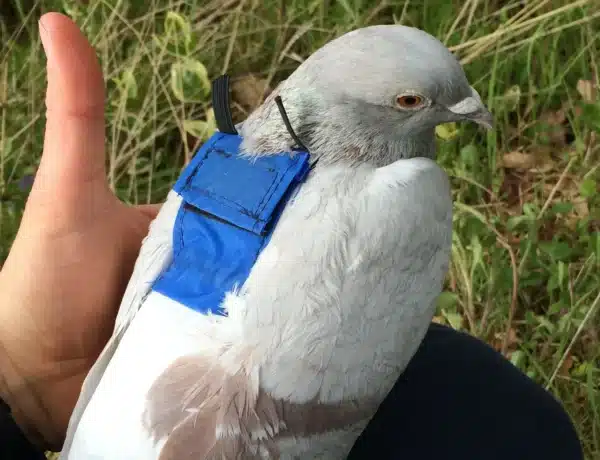
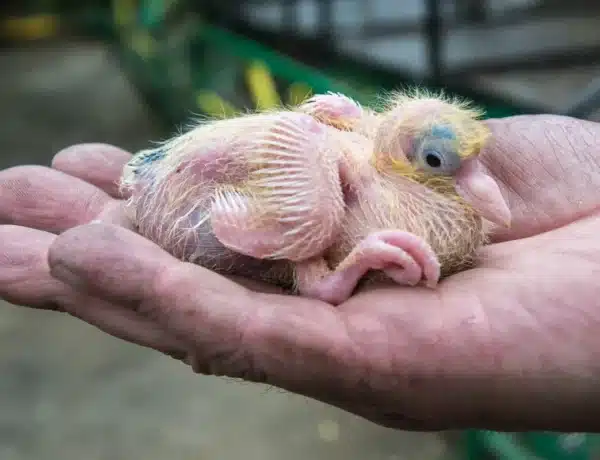
No Comments